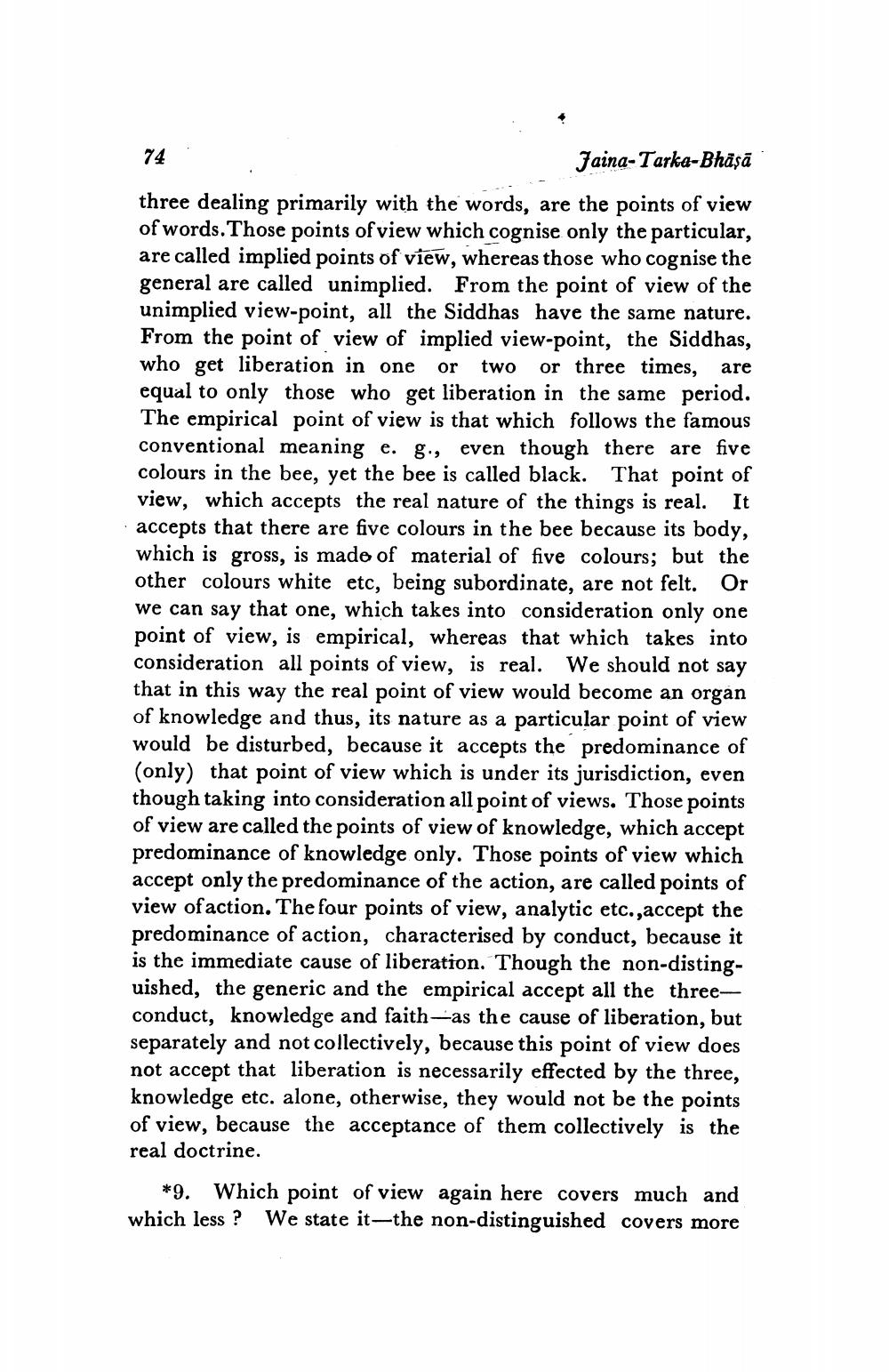________________
74
Jaina-Tarka-Bhāṣā
three dealing primarily with the words, are the points of view of words. Those points of view which cognise only the particular, are called implied points of view, whereas those who cognise the general are called unimplied. From the point of view of the unimplied view-point, all the Siddhas have the same nature. From the point of view of implied view-point, the Siddhas, who get liberation in one or two or three times, are equal to only those who get liberation in the same period. The empirical point of view is that which follows the famous conventional meaning e. g., even though there are five colours in the bee, yet the bee is called black. That point of view, which accepts the real nature of the things is real. It accepts that there are five colours in the bee because its body, which is gross, is made of material of five colours; but the other colours white etc, being subordinate, are not felt. Or we can say that one, which takes into consideration only one point of view, is empirical, whereas that which takes into consideration all points of view, is real. We should not say that in this way the real point of view would become an organ of knowledge and thus, its nature as a particular point of view would be disturbed, because it accepts the predominance of (only) that point of view which is under its jurisdiction, even though taking into consideration all point of views. Those points of view are called the points of view of knowledge, which accept predominance of knowledge only. Those points of view which accept only the predominance of the action, are called points of view of action. The four points of view, analytic etc.,accept the predominance of action, characterised by conduct, because it is the immediate cause of liberation. Though the non-distinguished, the generic and the empirical accept all the threeconduct, knowledge and faith-as the cause of liberation, but separately and not collectively, because this point of view does not accept that liberation is necessarily effected by the three, knowledge etc. alone, otherwise, they would not be the points of view, because the acceptance of them collectively is the real doctrine.
*9. Which point of view again here covers much and which less? We state it-the non-distinguished covers more




